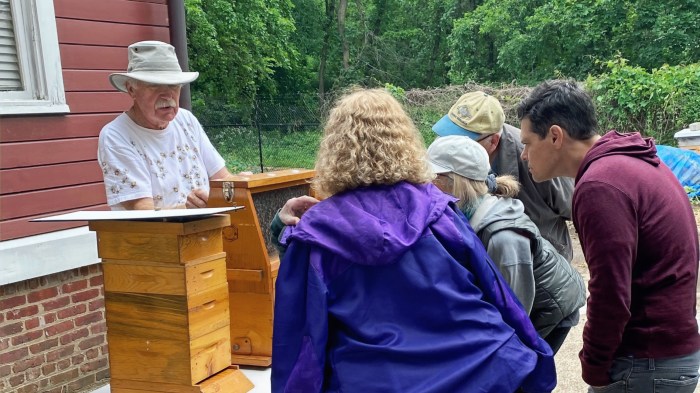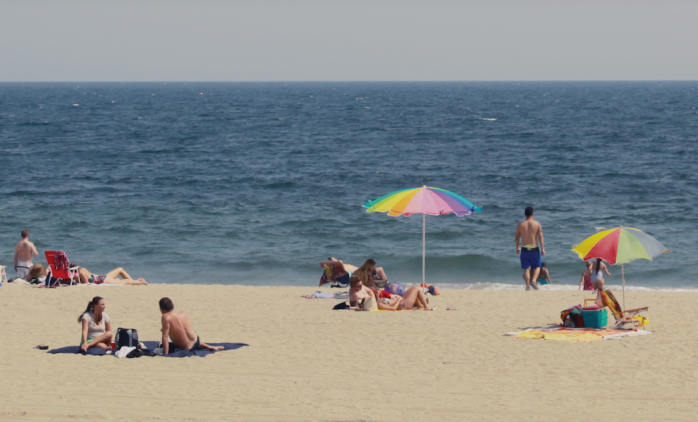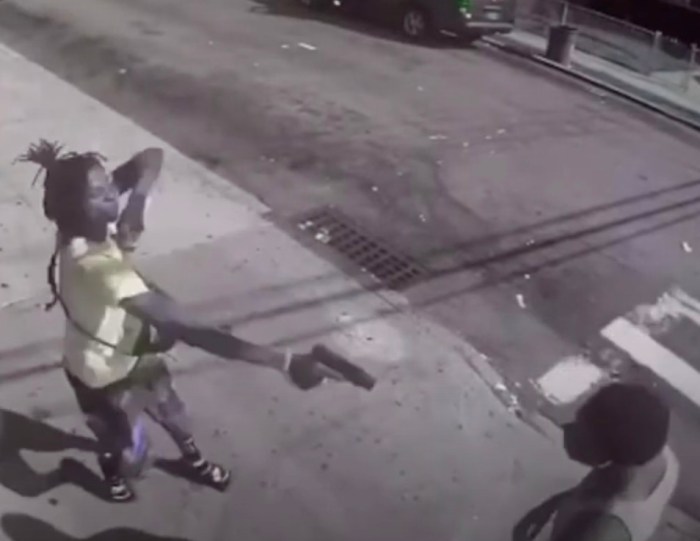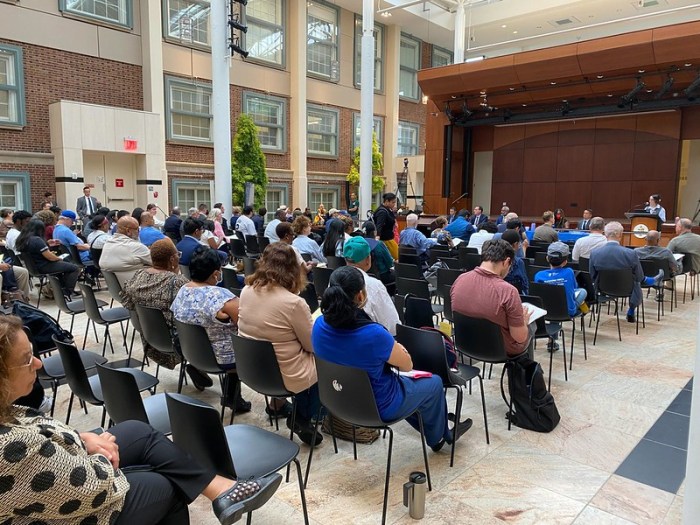By Sarina Trangle
Jeffrey Kurzon has couched his bid to swipe the Democratic Party’s backing from U.S. Rep. Nydia Velazquez (D-Brooklyn) in the June 24 primary by portraying the incumbent as an eager beneficiary of PACs bankrolled by firms in the financial sector.
But Kurzon, a Brooklyn attorney, has also benefited from such support.
Donations from those in the financial industry and lawyers who represent them have crept into Kurzon’s campaign coffers as he eyes the 7th Congressional District, which stretches from Sunset Park in Brooklyn through the southeastern tip of Manhattan and over to Maspeth, Woodhaven and Ridgewood.
Of the $615,190 Velazquez reported raising to the Federal Election Commission through Wednesday, $288,250, or 47 percent, came from PACs and other candidates’ campaign committees.
A TimesLedger Newspapers analysis of the PACs’ participants shows close to 10 percent of the congresswoman’s war chest came from organizations spearheaded by banks, credit unions and insurance-related financing institutions.
PACS are able to surpass contribution limits imposed on individuals by pooling together their money and donating it to campaigns to support or oppose political candidates and legislation. Some such organizations are administered by corporations, labor unions and trade associations and can only solicit funds from members of the sponsoring group.
Velazquez, a Red Hook resident who is the ranking member of the House Small Business Committee and senior member of the Financial Services Committee, did not respond to requests for comment on her finances or campaign.
A review of the $88,357 Kurzon reported fund-raising to the FEC showed 23 percent of the itemized contributions came from people who described themselves as employed in the financial industry or lawyers whose LinkedIn accounts and company websites noted their work entailed representing clients in the financial sector.
The FEC does not require candidates to itemize or include details about contributors for donations of $200 or less.
One of Kurzon’s contributors summarized his legal career by noting he successfully sought the dismissal of complaints against a private equity fund and shepherded financial institutions through investigations by the U.S. Securities and Exchange Commission, U.S. Department of Justice and New York attorney general’s office.
Kurzon said he used to work at Sidley Austin LLP, a global law firm offering an array of legal services, and many former colleagues contributed to his campaign. He contended that accepting money from individual bankers or financial lawyers was not comparable to taking it from their industries’ PACs, saying the average bank employee had most New Yorkers’ interests in mind.
“The incumbent’s job as someone on the House Financial Services Committee is to regulate the banks, and that’s a direct conflict of interest,” he said, noting he was troubled by the number of bank employees who said they needed to speak with their companies’ compliance team before donating to his campaign and never got back to him. “Banks are collectively using their financial might to pursue a political agenda and then telling their employees who they can and cannot contribute to.”
Kurzon’s campaign filings show he has spent $86,834 ahead of the primary, mostly on consultants and rent. His team has paid to advertise Kurzon on social media platforms like Facebook and Twitter, spent $1,000 sponsoring an Organizing New York conference and laid out $1,850 for a broker fee.
Velazquez appears to have invested significantly less in publicizing the primary. Her campaign directed about $230,550, or 42 percent of the $554,671 it reported spending, to other political organizations.
The Democratic Congressional Campaign Committee benefited most from this, receiving $197,500. Her committee also transferred $6,000 to the state Working Families Party committee, $1,000 to the Democratic Organization of Queens, $2,300 to City Councilman Antonio Reynoso’s (D-Brooklyn) campaign and $1,000 to the Ridgewood Democratic Club.
She did dip into her operating expenses to sponsor an event held by the National Puerto Rican Day Parade for $5,000, rent space for a fund-raising event from the National Association of Realtors for $300 and book a room in a Puerto Rico hotel for $863, FEC records show.
“To spend corporate campaign cash on luxury hotels in Puerto Rico seems out of touch,” Kurzon said.
Reach reporter Sarina Trangle at 718-e260-4546 or by e-mail at strangle@cnglocal.com.

































